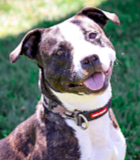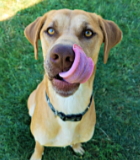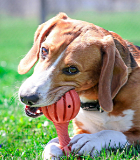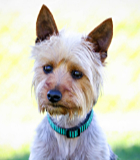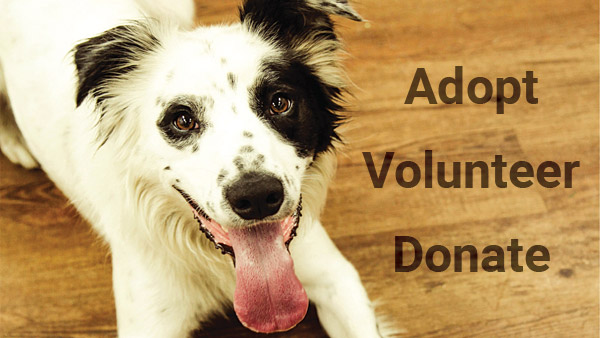Cancer
- This topic has 0 replies, 1 voice, and was last updated 14 years, 11 months ago by
Mackenzie’s Admin.
-
AuthorPosts
-
June 11, 2010 at 6:33 pm #525
Mackenzie’s Admin
MemberFinding out that a loved one has cancer can be very scary and confusing. When that loved one is your dog, it’s important to keep in mind that different veterinarians might have different views on the best way to treat the disease. It’s always a good idea to seek out a second opinion, perhaps from a veterinary oncologist, and carefully review your options.
What Is Cancer?
Cancer is a class of diseases in which cells grow uncontrollably, invade surrounding tissue and can spread to other areas of the body. As with people, dogs can get various kinds of cancer. The disease can be localized (confined to one area, like a tumor) or generalized (spread throughout the body).What Causes Cancer in Dogs?
Cancer is a “multifactorial” disease, which means it has no known single cause. However, we do know that hereditary and environmental factors can contribute to the development of cancer in dogs.What Are the General Symptoms of Cancer?
Symptoms of cancer in dogs may include:Lumps (which are not always malignant, but should always be examined by a vet)
Swelling
Persistent sores
Abnormal discharge from any part of the body
Bad breath
Listlessness/lethargy
Rapid, often unexplained weight loss
Sudden lameness
Black, tarry stools (a symptom of ulcers, which can be caused by mast cell tumors)
Decreased or loss of appetite
Difficulty breathing, urinating or defecatingHow Is Cancer Diagnosed?
If a lump is present, the first step is typically a needle biopsy, which removes a very small tissue sample. Alternately, surgery may be performed to remove all or part of the lump for diagnosis by a pathologist.Radiographs, ultrasound, blood evaluation and other diagnostic tests may also be helpful in determining if cancer is present or if it has spread.
Which Dogs Are Prone to Cancer?
Older dogs are much more likely to develop cancer than younger ones, and certain breeds are prone to specific kinds of cancers. Boxers, Boston terriers and golden retrievers are among the breeds that most commonly develop mast cell tumors. Large and giant breeds, like Great Danes and Saint Bernards, are much more likely to suffer from bone cancer than smaller breeds. It is important to be familiar with the diseases to which your dog might have a breed predisposition.How Can Cancer Be Prevented?
You can dramatically reduce your dog’s chance of getting certain types of cancer by having him or her altered at a young age. Breast cancer, the most common cancer for female dogs, can be avoided almost completely by having your dog spayed before her first heat cycle. And of course, a properly neutered male dog has zero chance of developing testicular cancer. Additionally, some believe that adding antioxidants such as vitamins C and E to a dog’s diet will reduce the likelihood of cancer.How Is Cancer Treated?
Treatment options vary and depend on the type and stage of cancer. Common treatments include surgery, chemotherapy, radiation and immunotherapy. A combination of therapies may be used. Success of treatment depends on the form and extent of the cancer and the aggressiveness of the therapy. Of course, early detection is best.Some dog owners opt for no treatment of the cancer at all, in which case palliative care, including pain relief, should be offered. Regardless of how you proceed after a diagnosis of cancer in your pet, it is very important to consider his quality of life when making future decisions.
Some cancers can be cured, and almost all patients can receive at least some benefit from treatment. Please note that if your dog’s cancer is not curable, there are still many things you can do to make your pet feel better. Don’t hesitate to talk to your vet about your options. And don’t forget that good nutrition and loving care from all the members of your family can greatly enhance your dog’s quality of life.
When Is It Time to See the Vet?
If your dog is exhibiting any of the symptoms mentioned in the above list, contact your veterinarian immediately. Should your dog receive a diagnosis of cancer, you may wish to consult a veterinary cancer expert. Many specialty veterinary practices and veterinary college teaching hospitals employ them. -
AuthorPosts
- You must be logged in to reply to this topic.





